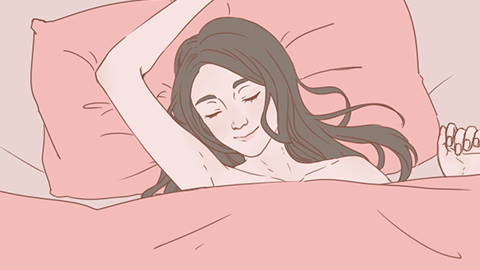What causes sleep apnea syndrome?
Sleep apnea syndrome may generally be caused by obesity, aging, adenoid hypertrophy, deviated nasal septum, hypothyroidism, and other factors. If discomfort symptoms occur, it is recommended to seek timely medical evaluation and treatment at a正规 hospital. Specific analysis is as follows:

1. Obesity
Excessive fat accumulation in the neck compresses the airway space. During sleep, muscle relaxation can lead to airway collapse, causing breathing pauses. It is advisable to adhere to a low-fat diet to control calorie intake, engage in 40 minutes of aerobic exercise daily (such as swimming or brisk walking) to gradually lose weight, and adopt a side-sleeping position at night.
2. Aging
With increasing age, the elasticity and tone of pharyngeal muscles decline, making airway narrowing or obstruction more likely during sleep. Avoid alcohol consumption and sedative medications before bedtime. Maintain regular sleep schedules to ensure good sleep quality. Oropharyngeal muscle exercises using oral training devices can help strengthen throat muscles.
3. Adenoid Hypertrophy
Excessive adenoid growth blocks the posterior nasal openings and pharyngeal cavity, obstructing airflow and triggering sleep apnea—particularly common in children. Medications such as mometasone furoate nasal spray, montelukast sodium chewable tablets, and budesonide nasal spray may be used under medical guidance. When drug therapy proves ineffective, adenoidectomy may be considered.
4. Deviated Nasal Septum
An abnormally deviated nasal septum obstructs one side of the nasal passage, impairing nasal ventilation and causing turbulent airflow during sleep, which may induce apnea. Physiological seawater nasal sprays, loratadine tablets, and Biyuan Tongqiao granules may be used under medical supervision to relieve symptoms. In severe cases, surgical correction of the nasal septum may be necessary to restore normal nasal structure.
5. Hypothyroidism
Inadequate thyroid hormone secretion leads to mucous edema, with fluid accumulating in soft tissues of the throat, narrowing the airway and causing apnea. Treatment may include levothyroxine sodium tablets, thyroid extract tablets, or L-thyroxine sodium tablets as prescribed. Regular monitoring of thyroid function is essential for appropriate dosage adjustments.
In daily life, maintain a healthy weight to prevent obesity; quit smoking and limit alcohol to reduce airway irritation; keep a regular作息 schedule and avoid excessive fatigue; use a pillow of appropriate height to maintain an open airway; and undergo routine physical examinations to detect and treat underlying conditions early.









